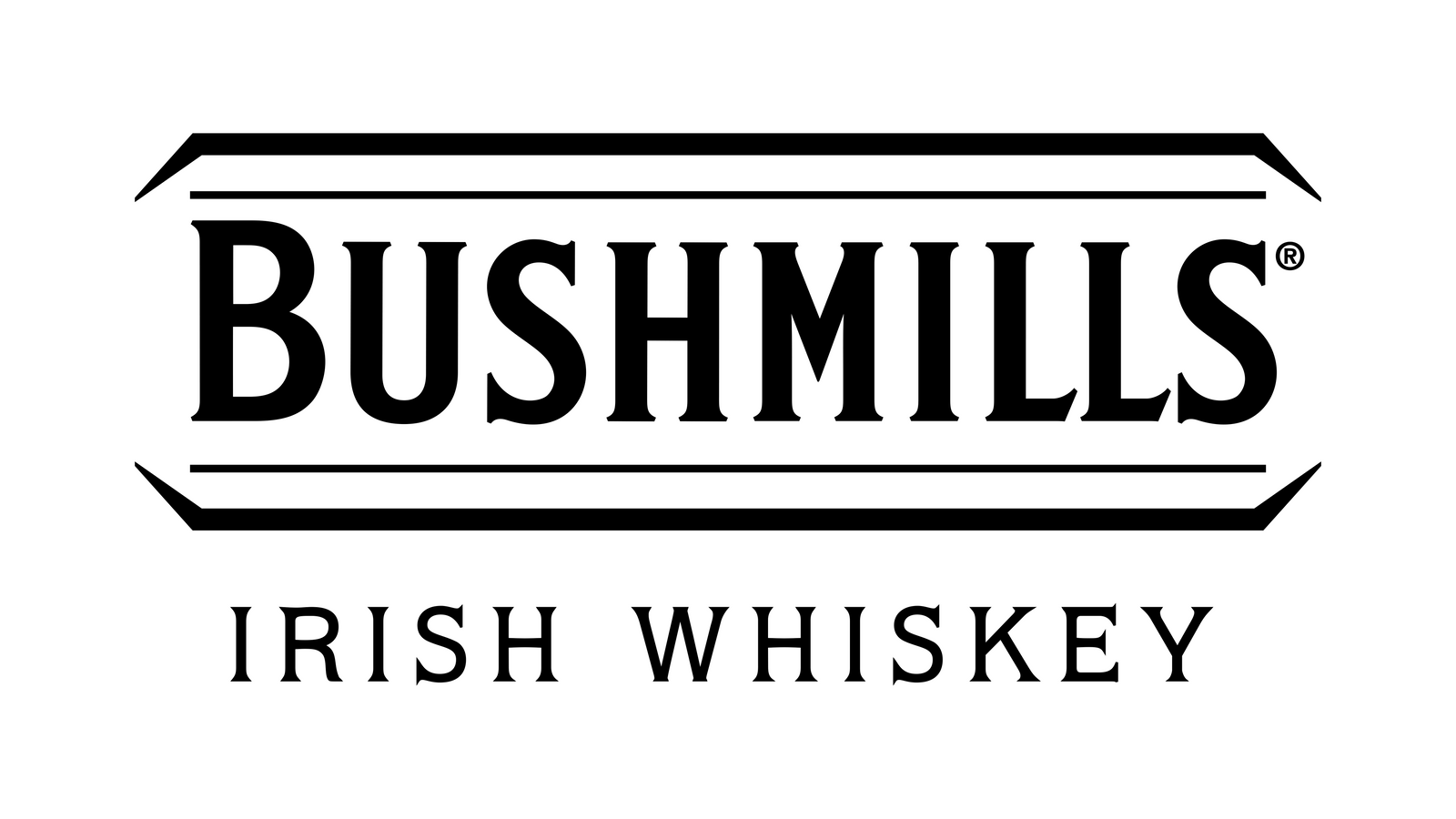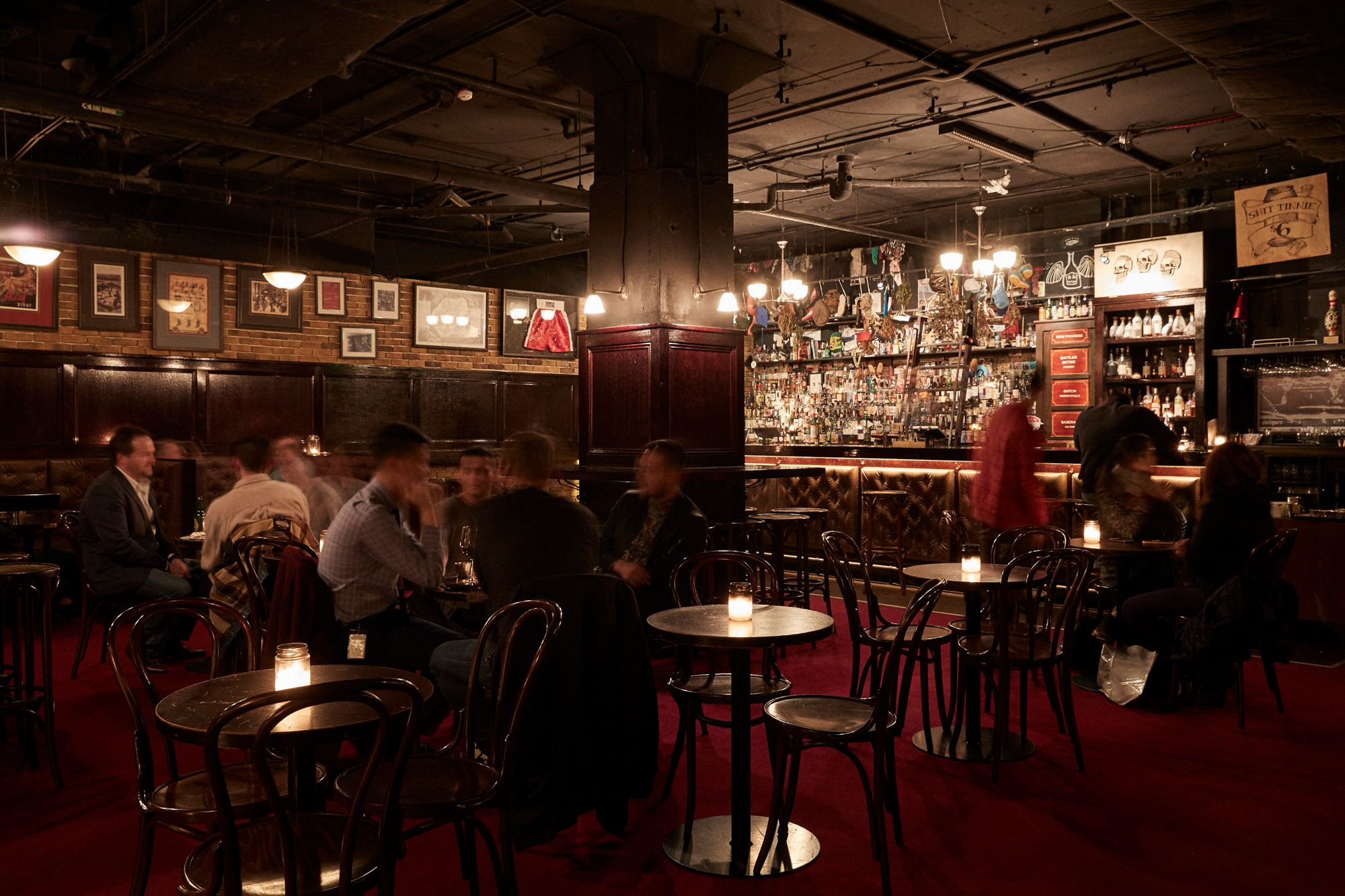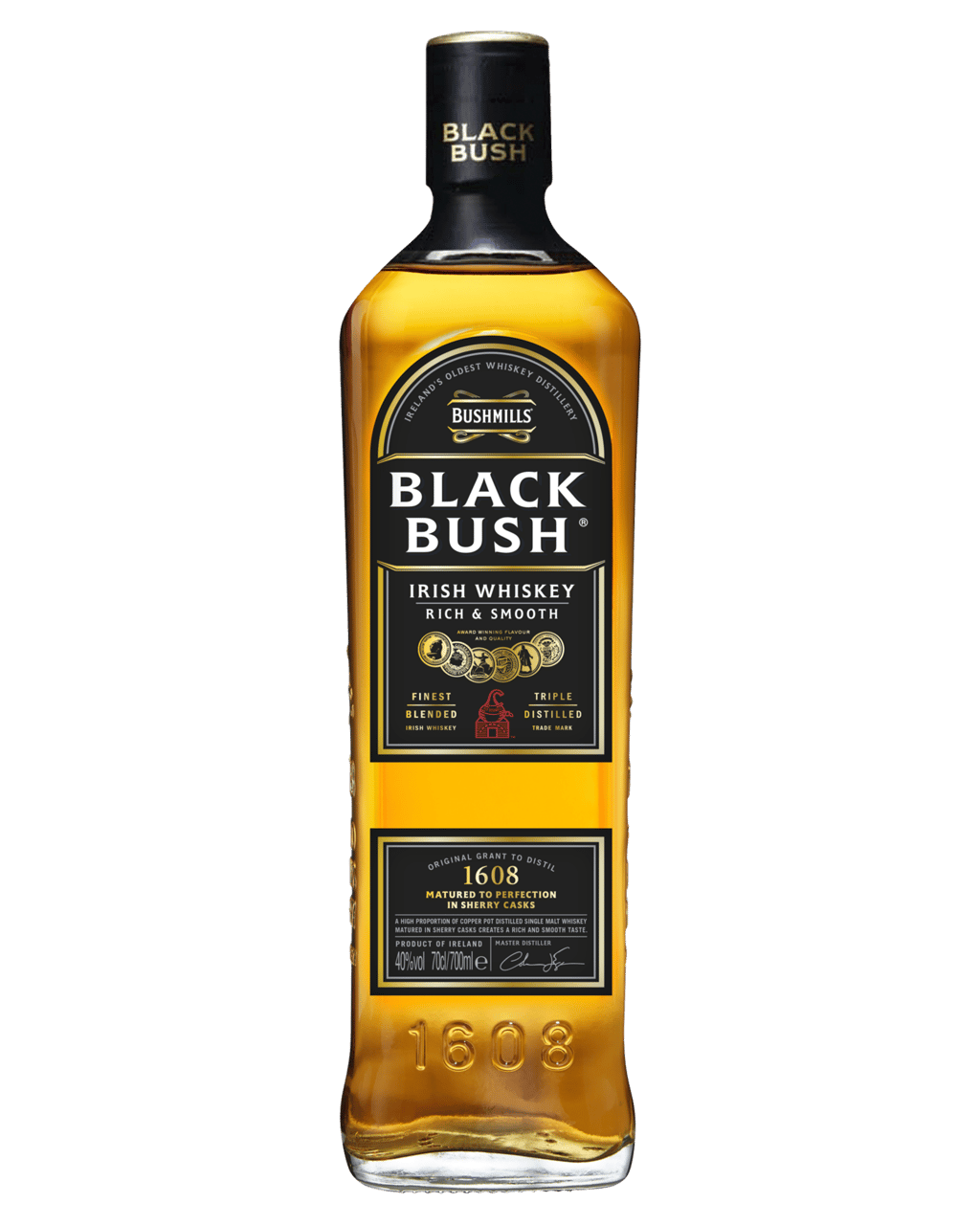
When Ramblin’ Rascal Tavern opened in 2014, it was the enfant terrible of the Sydney small bar world. A trio of owners — Dardan Shervashidze, Sebastian ‘Cosmo’ Soto, and Charlie Lehmann — were on the bar and fresh from working together at whisky-focused The Baxter Inn, at the time the pinnacle of Australian bars.
Those first six months, Lehmann says, were full-on.
“The first six months was wild. It was good fun.”
Known for ‘shit tinnies’ and cognac shots, it was billed at the time as a bar for everyone, whether it was the CBD suits, cool kids, bartenders, whoever — it was a good time.
Eight years on, you might think that the bar has matured and is settling into its middle-aged bar years, settling down into a regular pattern.
But you’d be wrong.
“I think I’m probably — definitely — still a child at heart,” says Lehmann. “So I still act like a fucking 18 year old, riding around on tricycles and tattoos and fucking jumping on bar tops dancing topless and all that sort of stuff.”
Some things have changed, however. It’s no longer the three owners on the bar every night — they opened their second bar, Double Deuce Lounge, in 2019 — and they’ve had three or four evolutions of their core team in eight years. It’s the influx of fresh talent and new energy that Lehmann credits with the bar remaining relevant to each new generation of drinkers.
“Having the iterations of the teams that come through, they brought in their own sort of subcultures that they are a part of, and they’re different age groups as well. So you’re getting their friends finding out,” he says.
But what else do you need to do to not just open a bar, but to make it thrive and set it up for — hopefully — a run of a decade or more? In the video here and in the full interview below (lightly edited and condensed for clarity), Lehmann lets us in on how they’ve grown the bar, what they do to ensure the ethos remains the same whilst evolving for new generations, and why dive bars never die.
How to open a bar that lasts: Charlie Lehmann
Sam Bygrave: How old is Ramblin’ Rascal Tavern?
Charlie Lehmann: Ramblin Rascal Tavern is now eight years old. We turned eight this year. So it’s nine next year?
What can you tell us about that time when you opened the bar?
It was wild. I was 25. Obviously, we just left Baxter Inn, the institution that sort of started most of this sort of stuff. It was with the other owners — with Cosmo [Soto] and Dardan [Shervashidze]. We all worked together at the Baxter and told [Baxter Inn owners] Anton and Jason we wanted to do that as well, do the operating thing. They helped us find here and I think yeah, from there, we opened here and the first six months was wild. It was good fun.
I remember on the opening night you had a queue out the front door.
Yeah there was a queue out the door, we decided to open on a Friday evening as a soft opening. That’s just didn’t work. It was mental. There was three of us on and our first hire Christo Heriot helping out and, man it was crazy because every man and his dog turned out. That didn’t stop for six months.
What is Ramblin’ Rascal Tavern all about?
When we kicked it off, we we left the Baxter as that was the premier whisky bar in Australia, if not the world. Heaps of other bars around Sydney and Australia started opening as well with with a focus on whiskey, tequila, and gin. Those are the three main categories that people focus on in Australia, really strangely, when they open bars. It’s a thing. So we like kick that away and when we opened here we [thought] well let’s do cognac, because it’s a bit baller. But with that, we didn’t become specifically a cognac bar, because we still have really good rums and whiskies and gins and whatnot, so as it evolved it was less a cognac bar — just shooting cognac and drinking shit tins. We became a like a five star dive bar which in my my personal opinion, it adds to the longevity of [of the bar] — dive bars never die. You know, trends come and go but dive bars remain.
And you don’t have to spend any money on fitting the place out.
Not at all, literally shit gets put on your wall. You leave it there — not literal shit — and so after eight years, if you look around, there’s stuff everywhere and it’ll just keep growing.

There’s a few bar awards up there as well.
We've won a couple of best bar teams in our time, yeah.
Because you used to have two or three owners behind the bar, and that I think is sort of what made it special.
Yeah, three owners behind the bar for at least four years. We worked with each other on the daily at Baxter Inn and Swillhouse, so we’ve been working together for almost 10 years. And we still get along, surprisingly, I mean, we still quarrel and we’re like lovers, but at end of the day, we’re like a married threesome. It stems from adoration and just absolute anarchy. But we still get along, we still talk shit. We ground each other in a way, you know?
How has the bar changed over the years? Because, you know, as you said, it’s a dive bar, things sort of keep sticking. So there’s the decor part. But how has the the ethos changed or evolved?
I think that’s the thing. The ethos, or the philosophy hasn’t changed very much. Like we’re not the premier bar in Sydney, serving the best cocktails in the world, and revolutionising, you know, the cheffing world as well. We’re a dive bar. And I think the product and ethos is [that] you get really good service, and you can get a really good drink. That’s our ethos — and don’t be a dick — essentially. So it’s a safe space too. I think if you’re consistent with all of those, and you teach your staff to permeate that through their service as well, then you get people coming back for that, even though it’s not the best bar. You know what I mean?
Oh it’s pretty good.
It’s pretty damn good. It’s great. It’s all about service. And like, I tell everyone that when they work here, treat this like it’s your house party, you want people to have a really good time. Just make sure that the standard of service is up there. So you can get a shit tinny and a shot of cognac. Or you can get a really good classic. That’s what we’re all about. We’ve also got a good signature list as well. All the elements are there. That’s what people keep coming back for.
How have you kept that ethos going throughout the eight years? Considering the teams change, and there’s probably been a few different crews now.
There has been three or four iterations of our crews over eight years. Like, we’ve had floods and Covid, and we’ve been able to keep most of our team. I think the key there is having the owners hands-on. That’s big. Because then the message you’re getting is coming directly from us straight into them, and just building your teams up and trusting them. Trusting bar manager Dylan Buda and [assistant bar manager] Brianna Aboud at the moment, they run the bar here and believing in them and their ability to run things and to give the same message, the same philosophy and ethos that we’ve always given across the bar. They do the same thing, because they believe in it, too.
So how do you go about sort of giving that responsibility and taking that step back and trusting someone to do it with your baby?
It’s really hard, it’s very, very hard. Working side by side with them on the daily, that helps, because then you understand them a lot more. Also, working almost 80 hours a week for the rest of your life is not very good for your health. You need to step back every now and then to evolve as a bar, and for it to have its own identity — not just based around your ego — is really important.
How long do you reckon this bar will be around for?
Forever hopefully. I need to retire on something, right?
This is your superannuation.
This is the super right here. Like I said, dive bars never die. So I never want it to really go. But, you know, this city loves tearing things down and building new stuff.
We do in Sydney, don’t we?
Rest in peace Frankie’s. But we’ll be here for as long as they let us be here.
Did you imagine this would be here in eight years time when you opened?
No, I didn’t. We’ve been through so much here. Like, again, floods and COVID and whatnot. Everything’s always on that fine line of like, but I don’t know, something in the back of your mind always tells you that you’re just going to turn up for work and it will be here. I’ve never really thought, “Well, what happens if it’s not here?” Maybe I’m too scared to face that. I’m not sure. I’ve just always thought like, it’ll be here and it won’t go anywhere until one of the floods hit again or something. I don’t know. It’s interesting, because I’ve never really thought, could it be gone?
Do you think it could be here, like way down the track, nut after you guys shuffle off this mortal coil? Will Rascals still be kicking?
That’d be amazing if it could. I mean, even just as a museum to the golden age of bartending in Sydney.
Back when things were great.
I hope so. Even now there are 18 year old kids coming in and I’m like, oh shit — 18 year olds. There’s this new generation of people coming in to experience something I built eight years ago.
Do they interact with it the same way 18 year olds did eight years ago?
Pretty much. I think I’m probably — definitely — still a child at heart, I still act like a fucking 18 year old, riding around on tricycles and tattoos and fucking jumping on bar tops dancing topless and all that sort of stuff. I think it’s a great space for an 18 year old, fresh out, to come down and experience because it has all those elements — you can get a top end cocktail, a classic cocktail. You want an ice cold Margarita or you want a Negroni or an Old Fashioned, we can walk you through all that.
When you first open, it’s a busy time, you’re flat out opening a bar in the lead up to it and then after. At what point do you get to turn around and look at what you’ve done and go, ‘Well, we did something really good.’
I think you do that every day. Every day you walk in, like, “Yeah, this is pretty alright.” Or, you’re like, “Oh, fuck, I meant to fix that two years ago, and I didn’t.” You’ve got to really appreciate it pretty much every day you walk in on it. And winning awards is fun, too, even though it can be the biggest wank in the world. It’s still a lot of fun. Because it’s your peers sort of saying, “Hey, you did a good job.” You know what I mean? It’s like a pat on the back.
Is it important when it comes from your peers?
I think it’s way more important coming from your peers, because they’re the people who judge you the most, you know, we can be pretty catty. I love it. It’s good. Keeping each other honest is important. So being nominated by your peers alone is amazing.
Would you change anything to win an award?
Nah. It’s what Anton always used to tell us: if you build it, they will come. So if you have something and you build it, it’s coming from the heart. You know what I mean? If I put elements in that was just to win an award, it’s not honest. I can always evolve as a bar, change techniques, that might put you in the running for shit. But at the end of the day, man, it’s just about having a good time and service. Putting out the good product, that’ll win you the awards; that people give money across the bar, that’s the that’s the real reward.
Yeah, you’re still a business owner in business after all.
It’s Sydney, man — do you know how hard that is?
That’s what I find interesting, too. Because you’re eight years in, and you seem to get this new crowd of people coming here. And that doesn’t always happen in this city — in Sydney for six months you’re hot. And then if you’re not constantly in people’s faces, it peters out. And bars can really struggle.
Yeah, we’ve been lucky in that respect. I think also having just the iterations of the teams that come through, they brought in their own sort of subcultures that they’re part of, and they’re different age groups as well. So you’re getting their friends finding out. Now we do a lot of live music as well. So you’re getting another side of it that’s happening. People talk as well. I think after eight years, you know, people — if you talk enough shit, they’ll find you.
What we're drinking

Bushmills Black Bush is made with a high component of malt whiskey in the blend, and by using predominantly ex-oloroso sherry casks for maturation, means that Black Bush has a rich, malty character, with fruity sherries notes and a smooth finish.










